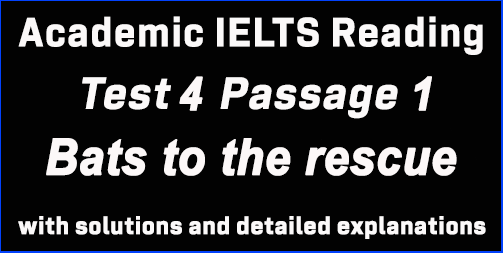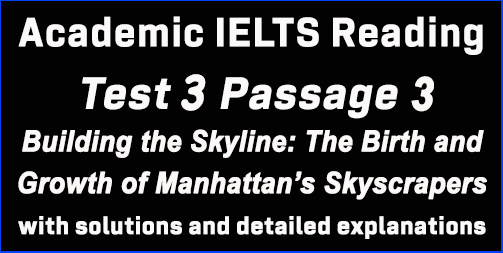IELTS General Training Reading: Cambridge 11 Test 3 Section 2; HOW TO ORGANISE A SUCCESSFUL BUSINESS CONFERENCE & How to deal with the annual performance appraisal; with top solutions and best explanations
This General Training IELTS Reading post focuses on solutions to IELTS Cambridge 11 Reading Test 3 Section 2 that has two texts entitled ‘HOW TO ORGANISE A SUCCESSFUL BUSINESS CONFERENCE’ and ‘How to deal with the annual performance appraisal’. This is an aimed post for candidates who have big problems finding out and understanding Reading Answers in the GT module. This post can guide you the best to understand every Reading answer without much difficulty. Finding IELTS Reading answers is a gradual process, and I can confidently say that this post will help you in this respect.
IELTS Cambridge 11 Test 3: GT Reading Module
Section 2: Questions 15-27
Question 15-20
The headline of the passage: HOW TO ORGANISE A SUCCESSFUL BUSINESS CONFERENCE
Completing notes:
[In this type of question, candidates are asked to complete different notes with ONE WORD ONLY from the passage. Keywords are important to find answers correctly. Generally, this type of question maintains a sequence. However, we should not be surprised if the sequence is not maintained. Find the keywords in the passage and you are most likely to find the answers.]
Question 15:
Venue and timing:
– try to avoid scheduling the conference during ___________ times or when other annual conferences occur
Keywords for this question: venue and timing, try to avoid, scheduling, conference, during, or, when, other annual conference occur,
In the ‘Where and when’ section, take a look at lines 2-4, “ . .. . . when choosing the date take into account the timing of similar regular events which may clash. Also, consider holiday periods which may mean that people are away and so will not be able to attend.”
Here, take into account, consider = to try avoid, timing of similar regular events = other annual conferences, periods = times,
So, the answer is: holiday
Question 16:
- choose a place with a large hall and also _________ spaces for smaller meetings
Keywords for this question: chose a place, large hall, spaces for smaller meetings,
In the ‘Where and when’ section, take a look at lines 6-8, “ . .. . Visit the venue personally: consider the size of the main lecture hall and whether it is big enough for the anticipated number of delegates, then look into the potential of having breakout areas for separating into a number of groups for discussions.”
Here, size of the main lecture hall . .. .. big enough = place with a large hall, a number of groups for discussions = smaller meetings,
So, the answer is: breakout
Question 17:
Speakers:
– choose appropriate speakers
– give the speakers as much __________ as possible
Keywords for this question: speakers, give, the speakers, as much, as possible,
The answer can be found in the section named ‘Who’. Here, in lines 1-2, the writer says, “ . .. . The next stage is to choose the speakers and invite them, making sure you give them ample notice so they are more likely to be available.”
Here, ample = as much .. . .. .as possible,
So, the answer is: notice
Question 18:
– confirm individual details with speakers, check if they will need accommodation and request a _________ of their presentation
Keywords for this question: confirm, individual details, with speakers, check, if, need accommodation, request, their presentation,
In the ‘Contacting people’ section, take a look at lines 2-5, “. . .. . At the same time, contact all the speakers again, confirming their particular topic, the audio-visual aids which will be available and finding out their accommodation requirements. Ask them to provide a written summary of their presentation for distribution to delegates at the conference.”
Here, their particular topic, the audio-visual aids = individual details, finding out their accommodation requirements = check if they will need accommodation, ask them = request,
So, the answer is: summary
Question 19:
– make sure each person attending receives information about the conference and a __________ for identification
Keywords for this question: make sure, each person attending, receives information, conference, for identification,
The answer to this question is in the ‘Final arrangements’ section. Here, the writer says in line no. 4, “Prepare delegate packs to include a name badge, delegate list and programme.”
Here, delegate packs = information about conference, identification = name,
So, the answer is: badge
Question 20:
– use __________ to get opinions on the conference
Keywords for this question: use, get opinions on, the conference,
In lines 5-7 of the ‘Final arrangements’ section, the author says, “ . . .. Then prepare questionnaires for all delegates to complete at the end of the conference. Their responses will enable you to gauge the success of the conference and start planning the next one!”
Here, responses = opinion,
So, the answer is: questionnaires
Questions 21-27
The headline of the passage: How to deal with the annual performance appraisal
Completing sentences with ONE WORD ONLY:
In this type of question, candidates are asked to write a maximum of one word to complete sentences on the given topic. For this type of question, first, skim the passage to find the keywords in the paragraph concerned with the answer, and then scan to find the exact word.
[TIPS: Here scanning technique will come in handy. Target the keywords of the questions to find the answers. Remember to focus on Proper nouns, random Capital letters, numbers, special characters of text etc.]
Question 21: By learning at an appraisal what areas of work need improving, staff can improve their chances of getting ___________.
Keywords for this question: learning at an appraisal, areas of work, need improving, staff can improve, chances of getting,
The answer lies in lines 3-4 of the first paragraph, “ . .. . Knowing what areas your superiors see as your weaknesses is the most direct way of increasing the likelihood of being considered for promotion, . .. ..”
Here, increasing = improve, likelihood = chances, being considered = getting,
So, the answer is: promotion
Question 22: It is important to think of some ____________ that can be used during the appraisal.
Keywords for this question: important, think of some, can be used, during, appraisal,
In the section named ‘Preparation’, take a close look at line no. 5. The writer says here, “Create a list of questions you would like to discuss during your appraisal.”
Here, create a list = important to think, would like to discuss = can be used,
So, the answer is: questions
Question 23: The appraisal can be a good time to ask the boss for extra __________.
Keywords for this question: appraisal, can be, good time, ask the boss for, extra,
The answer can be found in the ‘Preparation’ section. Here, in lines 5-7, the author states, “ . .. . This one-on-one time with your boss is an excellent opportunity to ask him or her about your role in the company, request any additional responsibilities you would like and clarify your priorities.”
Here, excellent opportunity = good time, additional = extra,
So, the answer is: responsibilities
Question 24: React ________ to any criticism.
Keywords for this question: react, any criticism,
In the ‘During the appraisal’ section, the writer says, “ . … . Avoid taking any negative assessments that are offered as a personal attack, but rather try to take them on board calmly, … .. .”
Here, negative assessments = criticism, take them on board = react,
So, the answer is: calmly
Question 25: It is helpful to identify a number of individual __________ arising from the appraisal comments.
Keywords for this question: helpful, identify, a number of individuals, arising, appraisal comments,
In the ‘After the appraisal’ section, the writer comments in the very beginning, “Create a list of personal goals based on your performance appraisal. .. .. .”
Here, personal = individual, performance appraisal = appraisal comments,
So, the answer is: goals
Question 26: Staff can request a meeting half-way through the year to look at the ________ which has been achieved.
Keywords for this question: staff, can request, meeting, half-way through the year, look at, achieved,
Again, in the ‘After the appraisal’ section, the writer says in line no. 4, “ … . Six months after the appraisal, ask for a mid-term review with your boss to discuss your progress.”
Here, Six months after . . .. . mid-term review = a meeting half-way through the year, to discuss = to look at,
So, the answer is: progress
Question 27: If staff act on any appraisal comments, they will demonstrate their _________ to their work.
Keywords for this question: if, staff act, appraisal comments, will demonstrate, to their work,
Again, in the ‘After the appraisal’ section, the writer says in line no. 5-7, “ . .. . . Ask for more feedback to help you improve. Checking in with your boss helps him or her remember your dedication as far as your job is concerned, and may help remove any criticisms before they become a review point on your next formal appraisal.”
Here, Checking in with your boss = staff act on any appraisal comments, your job = their work,
So, the answer is: dedication
Click here for solutions to Cambridge 11 GT Test 3 Reading Section 1
Click here for solutions to Cambridge 11 GT Test 3 Reading Section 3




One thought on “IELTS General Training Reading: Cambridge 11 Test 3 Section 2; HOW TO ORGANISE A SUCCESSFUL BUSINESS CONFERENCE & How to deal with the annual performance appraisal; with top solutions and best explanations”